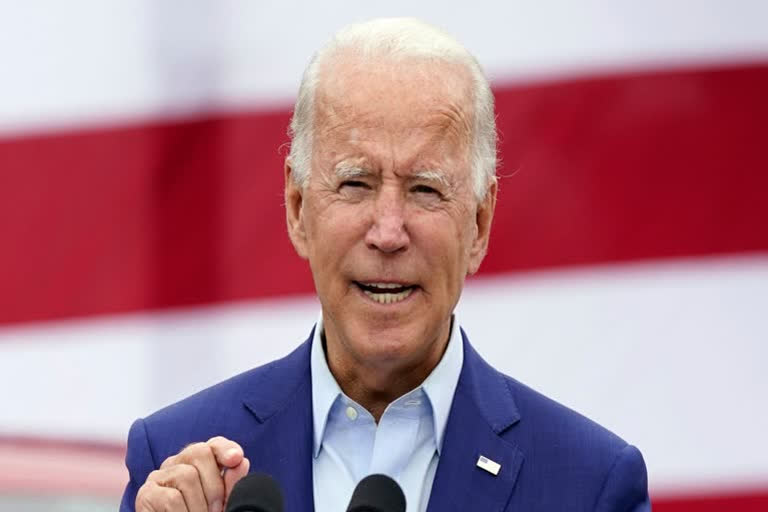New Delhi: A world-order-defining clarion call was issued on Saturday from a Carbis Bay resort in Cornwall, UK, by the G7 nations—an enviable grouping of the world’s seven wealthiest democracies—and also European Union representatives, that sought to take the wind off China’s sail in its rapid rise as an economic and military power.
US President Joe Biden has put forward an interesting plan called the “Build Back Better World” (3BW) which has two aims—to counter China’s ambitious and massive China’s massive Belt and Road Initiative (BRI) and to provide an infrastructural alternative to the nations of the world to China’s BRI.
While the details of the 3BW plan are yet to emerge, as of January 2021, China has signed Memorandums of Understanding (MoU) with 140 countries for the BRI which includes countries in Sub-Saharan Africa, in Europe and Central Asia, in East Asia and the Pacific, in West Asia and North Africa, in Latin America and the Caribbean and in South East Asia. Clearly, China has grabbed the first mover’s advantage with both hands.
BRI is a replication of China's ancient Silk Road trade route that connected China to Asia and Europe but now railways, roads, seaports, and highways besides other infrastructure will command the connect. From the strategic point of view, wherever the BRI extends itself, China’s influence spreads, hence the necessity on part of the West to try and contain it. Inherent in the 3BW plan is a US eager zeal to take EU and 30-member NATO with it to face China’s rapid rise and influence. But the ‘3BW’ has to overcome some stiff challenges.
Also Read: NATO treaty 'rock solid, unshakable', says Biden
A key obstacle is the variance between the US and among the EU and NATO allies on how to face up to China and even the necessity of it all. Firstly, leading EU economies like that of Germany, France and Italy are closely tied with the Chinese economy. Just to cite an instance of the difficulties ahead, China has inked the BRI MoU with about 18 EU countries. UK PM Boris Johnson has gone on record to say that the NATO members would not want to “descend into a new cold war” with China. On the contrary, he said there would be more opportunities to “engage” with the Asian giant.
Johnson’s tone and tenor found resonance with what NATO chief Jens Stoltenberg said when he said that while it’s growing military capabilities and domineering influence posed “systematic” challenges to the West, China was not NATO’s adversary or enemy. The narrative was followed later by French President Emmanuel Macron on Monday when he said in Brussels: “I think it is very important not to scatter our efforts and not to have biases in our relation to China. It’s much broader than the military topic: It’s economic, strategic, about values and technological.”
Secondly, the G-7 countries are all distinct countries with their own unique strengths and weaknesses. It will be difficult to group them all together in an anti-China bandwagon. Thirdly, the White House has described the 3BW plan as an “affirmative initiative for meeting the tremendous infrastructure needs of low- and middle-income countries.” With the ongoing viral pandemic having battered most Western economies, where will the financial commitment for the 3BW come from?
Also Read: UK: NATO doesn't see China as rival like Russia
Fourthly, the clout of G-7 or the unified strength of NATO is no longer what it was. From 1975 when G-7 was born, the share of the seven richest democracies in the world’s GDP has come down from 80 percent to 40 percent as opposed to China’s more than 18 percent now. What is obvious in these developments is the placing on the ‘Quad’ or the ‘Quadrilateral Security Dialogue’ on the backburner with no traction at all. At the same time, the mellowing position of the US-led spear thrust against China by EU and NATO will have its impact on India too.
Says Prof Kumar Sanjay Singh, who teaches history at a Delhi University college and is a keen follower of global strategic affairs: “Against China, NATO has positioned itself as a defensive grouping for now which indicates that economic ties will continue and negotiations will be the first tool of choice. It is therefore clear that India does not gain anything from this. If anything happens on the Indian borders, we will have to fend for ourselves.”
“Overall, one year of Joe Biden is not enough to undo the complexity in the US-EU-NATO relationship which had eroded considerably under Donald Trump’s leadership,” he added.
Also Read: Biden, Erdogan hold 'fruitful and sincere' meeting



